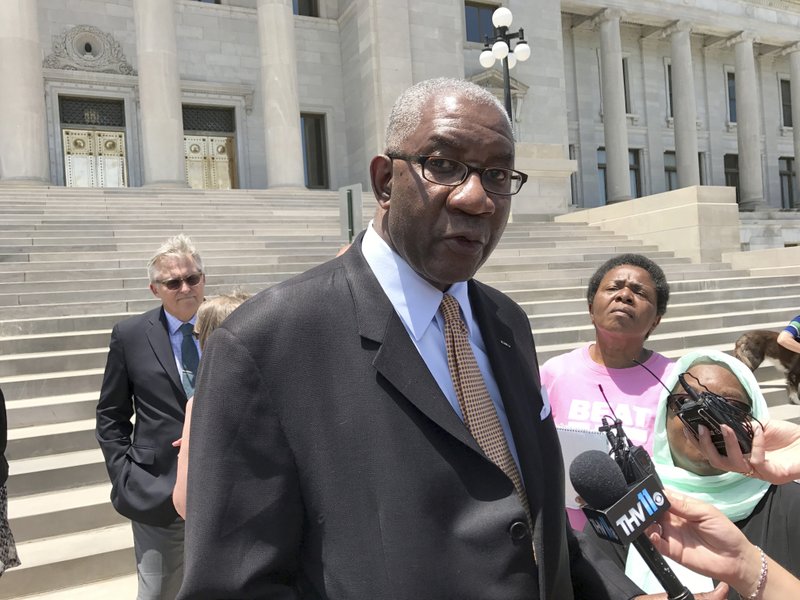The Arkansas Judicial Discipline and Disability Commission on Monday declined to dismiss ethics charges against Pulaski County Circuit Judge Wendell Griffen, setting the stage for a trial over the outspoken judge's public protests against the death penalty.
The request for dismissal came Friday from Griffen's attorneys, who painted the judge's actions as constitutionally protected free speech.
On Good Friday in 2017, hours after he issued a ruling that temporarily halted the state's efforts to carry out a series of executions, Griffen attended an anti-death penalty protest in front of the Governor's Mansion. He stretched out on a cot and tied himself to it.
Griffen's ruling was eventually overturned by the Arkansas Supreme Court, as was the ruling of another judge who reached the same legal conclusions. The justices punished Griffen for ruling on a matter he publicly opposed by stripping him of his ability to hear further cases involving the death penalty.
In June of this year, the disciplinary commission brought nine formal ethics charges against Griffen, stating that he should have recused from the case he decided the day of his protest. Griffen's attorneys sought to have the charges dismissed.
One of their arguments for dismissal was that Griffen followed Arkansas Supreme Court precedent and not his religious beliefs against the death penalty and thus the "Statement of Allegations ... fails to state a claim that he violated the Code of Judicial Conduct."
The commission said Monday that the "Statement of Allegations alleges that Respondent in his conduct failed to uphold and promote the independence, integrity, and impartiality of the judiciary and failed to avoid not only impropriety, but the appearance of impropriety. Actual bias is not necessary."
No date has been set for the trial.
Griffen's attorneys also asked to have the state turn over documents detailing communications made by members of the Supreme Court, the attorney general's office, General Assembly, governor's office and members of the Judicial Discipline and Disability Commission.
The commission agreed to three of Griffen's four requests for discovery.
Griffen's attorney, Mike Laux, did not respond to messages seeking comment late Monday. The commission's news release on the ruling was sent late Monday afternoon.
To investigate the case against Griffen, the commission contracted with its counterpart, the Mississippi Commission on Judicial Performance, and its staff attorney Rachel Michel. A phone call to the Mississippi commission's office in Jackson went unanswered late Monday.
During Friday's hearing, Michel repeatedly and erroneously referred to Griffen as "Judge Wendell." Griffen's attorney said in a press conference later that day that the error was disrespectful.
Griffen, a judge and pastor who often speaks out on social issues, has twice before had complaints against his comments tossed by the commission.
Metro on 08/21/2018
